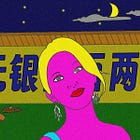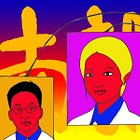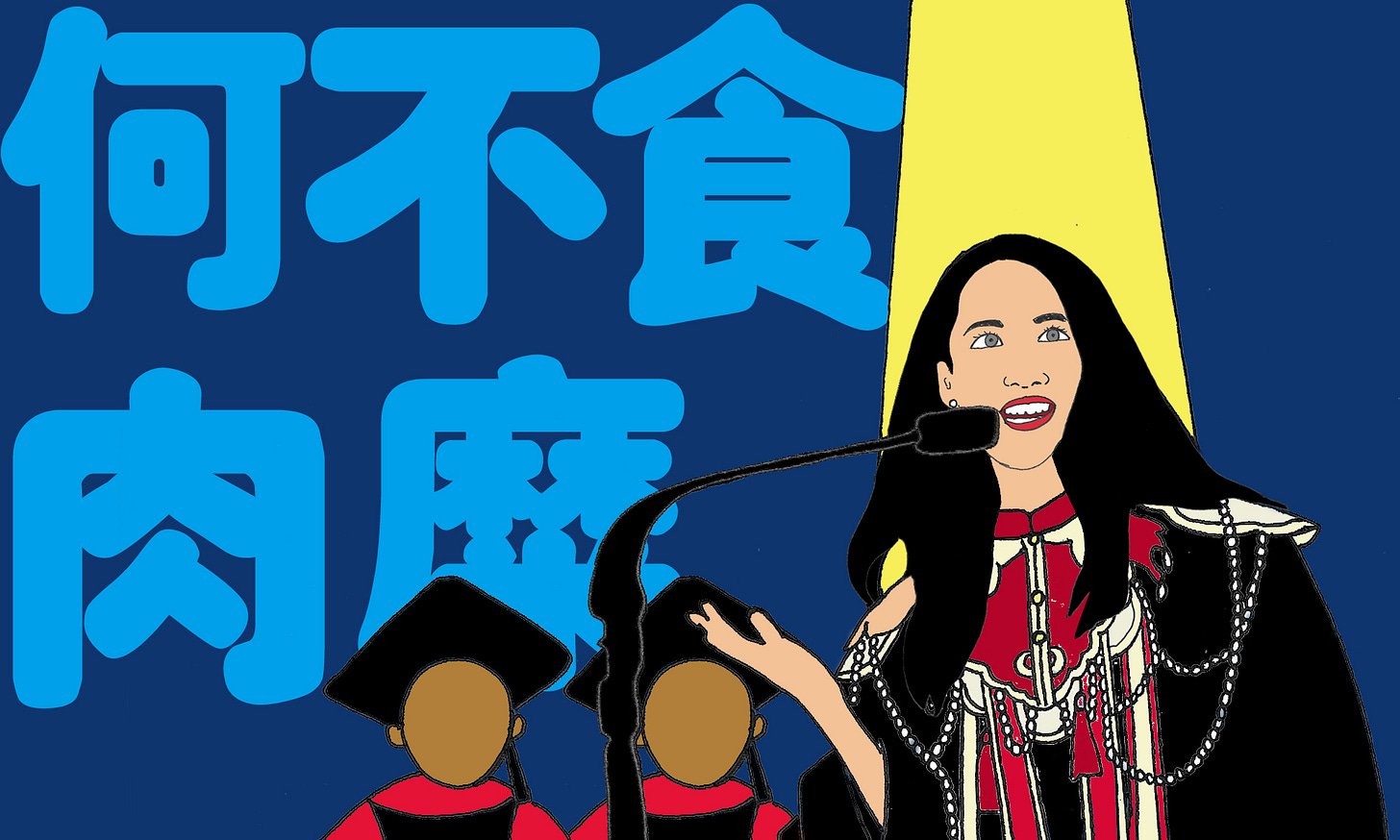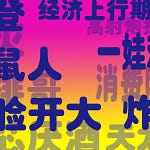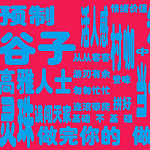Welcome to RealTime Mandarin, a free weekly newsletter that helps you improve your Mandarin in 10 minutes a week.
Subscribe today to get your fluency back, stay informed about China, and communicate with confidence in Chinese — all through immersion in real news.
A speech by a Chinese graduate at Harvard’s commencement ceremony has sparked a heated reaction in China.
Luanna Jiang Yurong (蒋雨融) was one of the three student speakers at Harvard’s graduation ceremony on May 29, and the first ever female speaker from China.
The 25-year-old from Qingdao delivered a four-minute speech titled “Protecting Our Humanity” (守护我们的人性), celebrating internationalism, diversity, and shared humanity.
The speech went viral in China, and Jiang was initially praised by many for her global outlook, and as a “source of pride for China” (为国争光).
But praise quickly turned into scrutiny, leading to a backlash on social media which is still simmering in China, more than two weeks on.
So why was there such an intense reaction to her short speech?
It’s all about timing. And unfortunately for Jiang Yurong: bad timing.
Beyond the usual toxic keyboard warriors attacking everything from the West in general to Jiang’s imperfect English accent, she struck a nerve with many, touching on sensitive themes in China which are particularly charged right now.
Reading into these reactions, I noticed three phrases running through many conversations, which help explain the intensity of the response.
Phrase 1: “The over-privileged” (天龙人)
This translates directly as “sky dragon people” and has roots in Japanese Manga. It’s also a popular phrase in Taiwan, describing people who live in Taipei.
It refers to people who live a life of extreme privilege, such as next generation officials in China (官二代).
This phrase was used to describe Jiang Yurong when it was revealed her father worked for a state-linked environmental foundation, which led to accusations that her place at Harvard was secured through elite family connections.
Jiang has also interned with the Mongolian Prime Minister, and did work experience at Credit Suisse, two roles totally out of reach for an average graduate in China.
So comparisons were inevitably drawn between Jiang Yurong, and two recent high profile scandals related to the privileged elite in China: “Miss Dong” (董小姐), and seventeen-year-old actress, Huang Yang Tiantian (黄杨钿甜).
Despite differing contexts of these three situations, one theme runs through them all: the elite connections of so-called “sky dragon people” give access to opportunities forever closed to most:
This indeed reflects a common trait of the next generation of the privileged in China.
They genuinely believe that inheriting multiple forms of privilege is their birthright.”
这的确是中国“新天龙人”的普遍特点——他们是很真诚地认为,集众美于一身的人生赛道是理所应当的。[3]
Related
Phrase 2: “The more you explain the worse things look” (越描越黑)
There are two options when facing a social media attack: say nothing, or hit back.
The usual playbook is to remain silent.
But, occasionally, the accused does respond, which usually makes things worse (like recently when the father of teenaged actress caught wearing $250k earrings suggested the luxury accessories were actually fake - which didn’t go down well!).
Rather than remain silent, Jiang Yurong decided to push back.
On June 3 she published a lengthy statement on social media. She explained how her parents had divorced when she was young, how she had experienced a difficult childhood, that she did not attend a top school in China, and that her place at Harvard was result of her own hard work.
The fall out in China to her statement intensified the reaction. The more she tried to explain, the worse things got.
This lead to accusations that Jiang was not only from a privileged background, but she was also being insincere and playing the victim.
Unusually, she leaned into the media conversation more, with an interview in LifeWeek (one of our favourite China-based publications) published on 12 June.
This interview was better received than her first statement and was relatively balanced, but still, for many people the more she explained, the more negative the reaction online:
But her attempt at self-explanation only stirred up more controversy—“the more she tried to explain, the worse things looked.”
她的自证同样引发争议,不但没有产生太多正面效果,甚至“越描越黑”。
Phrase 3: “Let them eat cake” (何不食肉糜)
The phrase, “why don’t they eat meat porridge” (何不食肉糜) is translated as the English idiom (originally from French), “let them eat cake.”
In this context, it summed up the sentiment of many in China.
Jiang’s original speech, and her subsequent pushback, give the impression she is out of touch, and far removed from the struggles of daily life in China.
So ironically her lofty message of empathy and finding common ground further exposed the deep divide between normal people and the privileged in China:
What netizens find most repulsive isn’t just Jiang Yurong’s “let them eat cake” attitude.
Another crucial point is that the suffering of ordinary people has increasingly become a kind of trendy accessory for the elite to show off their virtue.
网友最反感的,也不仅仅是蒋雨融这种何不食肉糜的心态。还有很重要的一点是,我们越来越发现,普通人的苦难,已经成为了精英阶层自我标榜的时尚单品。
This is one of those rare occasions when a conversation in China continues to evolve, and even thought it is partially censored, the debate continues and exposes deeper issues in Chinese society.
So, of course, we had to explore it this week!
🎧RTM Podcast Preview
This week on the RTM Advanced podcast, we're unpacking four words which can all be translated as “privileged” in different contexts:
优渥 yōu wò - privileged life
显赫 xiǎn hè - privileged family background
权贵 quán guì - privileged group of people
天龙人 tiān lóng rén - privileged person
Tune in at 7 minutes where we break down what they mean, how native speakers use them, and how you can use them in real conversations.
Favourite Five
1. 拼爹 pīn diē
rely on family connections, ride on one's father's coattails
她无非就想证明一件事,自己的成功不靠拼爹,没有背景,都是后天的努力,是小镇做题家的逆天改命 – Obviously, she tried to prove that her success didn’t come from family connections or a privileged background, but from personal effort—a "small-town test-taker's" way of defying fate. [4]
2. 假惺惺 jiǎ xīng xīng
insincerely, hypocritically
对弱者的困境挤出一滴假惺惺的眼泪,她就想要大家的敬仰和欢呼 – She expected admiration and applause from the crowd for the crocodile tears that she shed for the suffering of the disadvantaged. [4]
3. 陈词滥调 chén cí làn diào
cliché, overused expression
直到朋友群里有“太空洞了”、“都是陈词滥调”的嘀咕声,才有了吾道不孤的安心 – It wasn’t until short comments like “too empty” and “all clichés” appeared in the chat group that I felt reassured I wasn’t alone in my views. [3]
Related:
老套 lǎo tào - stale, clichéd
4. 得了便宜还卖乖 dé le pián yi hái mài guāi
take advantage while pretending to be innocent
是不谙世事的天真,还是得了便宜还卖乖的自信? – Is it naïveté from inexperience, or the confidence of someone who plays the victim after benefitting from the system? [3]
5. 何不食肉糜 hé bù shí ròu mí
let them eat cake, oblivious to hardship
网友最反感的,也不仅仅是蒋雨融这种何不食肉糜的心态 – What netizens resented most wasn’t just Jiang Yurong’s “let them eat cake” attitude. [4]
More: Read more about this phrase in tomorrow’s Sinica Phrase of the Week.
💡 Ready to get inspired to bridge the gap to real-world fluency? 💡
Every RTM post is packed with tools to inspire and help you get fluent.
It's designed to fit your busy life, your learning style, and your level—whether you’re “intermediate”, “advanced but rusty”, or “fluent with gaps”.
So, ready to finally get started and wave good bye to that nagging rusty feeling?
Let’s jump in👇




